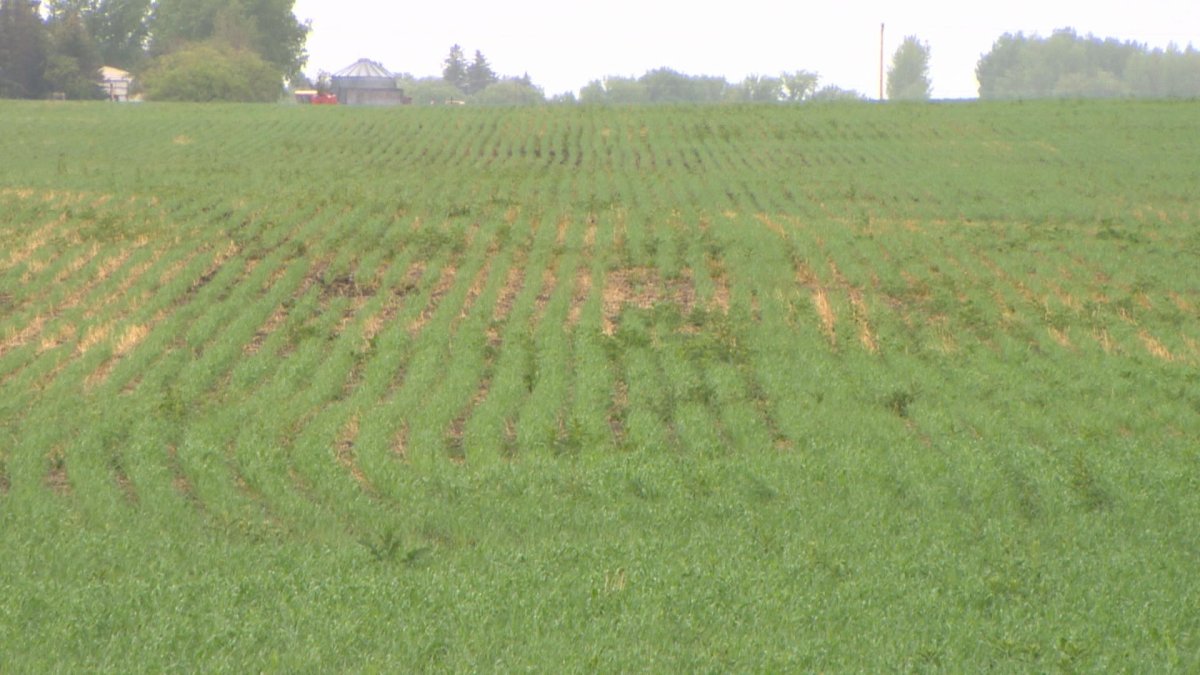Saskatchewan Agriculture says although rain showers in the past week helped alleviate dry conditions in parts of the province, more moisture is needed to help crops develop.

The crop report, released Thursday, said the majority of crops are in poor to good condition, but have improved with the recent rainfall.
Overall, 66 per cent of fall cereals, 56 per cent of spring cereals, 42 per cent of oilseeds, and 70 per cent of pulse crops are at normal development stages for this time of year.
Rain in the past week did little to change topsoil conditions, officials said.
Cropland topsoil moisture is rated at four per cent surplus, 85 per cent adequate, and 11 per cent short.
Hay land and pasture topsoil moisture are rated at two per cent surplus, 76 per cent adequate, 21 per cent short, and one per cent very short.
WATCH: Alberta producers feeling stress from China’s canola ban

Haying operations are underway, with livestock producers saying they have one per cent of the hay crop cut and one per cent baled or put into silage.
Quality is rated at three per cent excellent, 20 per cent good, 40 per cent fair and 37 per cent poor, with hay yields reported being significantly lower than average due to the lack of moisture.
Many pastures have improved with the recent moisture, officials said, but are expected to have a reduced carrying capacity forcing livestock producers to look for alternative feed sources.
The Canadian Crop Hail Association (CCHA) said a number of claims have been filed for crop damage due to storms between June 21 and 27.
CCHA said producers in Oungre, Midale, Moose Jaw, Rush Lake, Glenavon, Montmartre, Bethune, Craik, Wilkie, and Maple Creek were hit the hardest.
“The hail activity was sporadic with stones that ranged from pea to loonie-sized,” said Darryl Tiefenbach of Additional Municipal Hail.
“The storms also produced significant rainfall.”
The hail caused light to heavy crop damage and claims are still coming in from some of the storms, CCHA said.


Comments